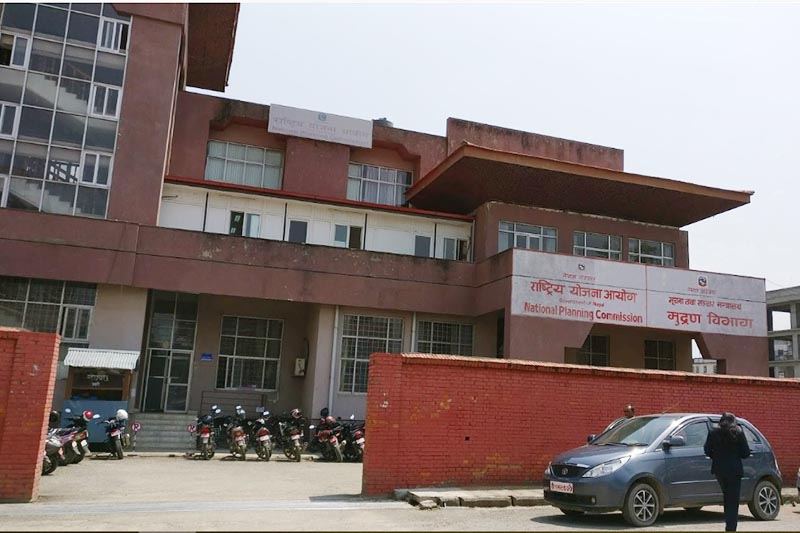National Planning Commission seeks details of stalled projects
Kathmandu, September 25
National Planning Commission (NPC) has sought the details of stalled projects from all the provincial and local governments by October 24 to support their completion.
Issuing a circular to all 760 provincial and local governments on Tuesday, NPC has said the list of such stalled projects can even be submitted via e-mail. It has further said that the provincial governments need to verify the project details from the related Office of the Chief Minister and Council of Ministers before submitting it.
Similarly, metropolitan cities, municipalities and rural municipalities also need to have the details verified from the respective offices before submitting it.
Pushpa Raj Kandel, vice-chairman of NPC, said that as the government has declared it will focus on completing the incomplete projects in the ongoing fiscal year, the commission is supporting the government’s vision.
“We have created a separate software for collection of verified stalled projects from the provincial and local governments. They will be able to submit the details of incomplete projects as per their jurisdiction,” he added.
Kandel further said that after receiving the details of such projects, the NPC will assess and forward them to the implementing agencies and suggest to provide sufficient budget to them under equalisation and special grants.
As per NPC, there are more than 1,000 such stalled projects at the moment. After the federal governing system was implemented from last fiscal year, the government has been trying to aggressively complete such projects.
Earlier, Finance Minister Yubaraj Khatiwada had said that the government would be more focused on completing the stalled projects rather than allocating funds for
new projects.
NPC has set certain conditions for the provincial and local governments to receive such equalisation and conditional grants. To receive equalisation grant from the federal government, the projects need to fall under specific sectors like financial, agriculture, land management and forest, infrastructure, social, governance, among others. The project cost should fall in between Rs 10 million and Rs 50 million. Moreover, they should also have allocated at least 50 per cent of the project cost during budget announcement.
Similarly, for special grants, the projects should fall under the categories of education, health, drinking water, food safety, inclusiveness, sanitation, among others. The project cost should be at least Rs 50 million for provincial governments and Rs five million for local governments.






